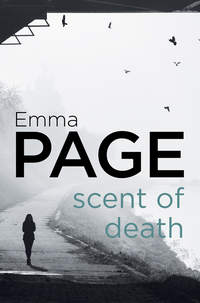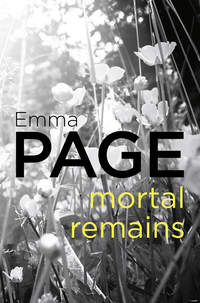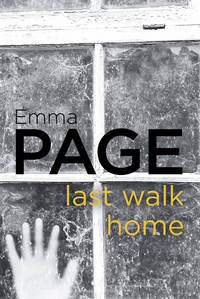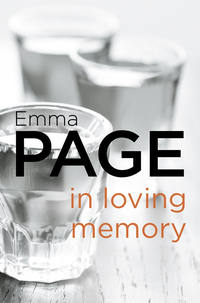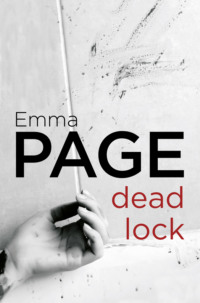
Полная версия
Every Second Thursday
She ran out of the room and along the corridor, down a few steps and round a corner, to Miss Jordan’s room. There was no sound from within. She rapped loudly and without ceremony, calling out, ‘Miss Jordan! Are you awake?’
There was a stir from inside and Miss Jordan’s voice called back sleepily, ‘Is that you, Alma?’
Without more ado Alma went in. The curtains were still drawn together. In the half-light Miss Jordan began to raise herself from the pillows.
‘There’s something wrong,’ Alma said urgently. ‘Mrs Foster – I can’t make her hear. Her door’s locked.’
Miss Jordan came fully awake. She flung back the clothes and sprang out of bed. She dragged on a dressing-gown, thrust her feet into slippers.
‘I don’t like it,’ Alma said rapidly. ‘I can hear the radio playing. I knocked and knocked but she doesn’t answer.’
They left the room at a run. ‘I tried to get in,’ Alma said, ‘but the doors are locked. Both doors.’
They reached Mrs Foster’s room. Miss Jordan rattled the door handle, calling out, then she ran into Mr Foster’s room, followed by Alma. She tried again.
‘She tried to do something once before,’ Alma said. ‘Years ago. Before I came here. She took a lot of tablets.’
‘Is there another key?’ Miss Jordan said urgently. ‘To either door?’
Alma frowned fiercely down at the floor. ‘I can’t think of one. I can’t remember a spare key.’
‘Then we’ll have to get help. Someone to break the door down.’
‘The Pritchards,’ Alma said at once. ‘Down at the cottage. You go, I’ll stay here.’ Miss Jordan, slimly built, would be able to run a good deal faster than Alma.
Alma stayed by the bedroom door, keeping up the fruitless calling and knocking. It seemed an age before she again heard the sound of running.
Young Bob Pritchard came racing into view along the corridor. ‘Stand away!’ he ordered as he reached the door.
He sprang back against the opposite wall, then leapt forward at the door, striking it with his raised foot. The door creaked. He went back to the wall and sprang again with all his strength. This time the panel gave.
As he struggled to get the door open Alma saw his father, Ned Pritchard, still quick and active at seventy, appear round the bend in the corridor, with Miss Jordan behind him. A smell of burning oatmeal floated up from the kitchen. The porridge, Alma registered – it’s boiled over.
‘You’ve managed it, then,’ Ned called out as the door gave way. Alma followed Bob at a rush into the bedroom.
The lights were full on, the curtains drawn together. Beside the bed the radio played and sang.
Ned and Miss Jordan reached the door and came breathlessly in.
Mrs Foster was in a reclining position, leaning back against the lacy pillows. She wore a little jacket of peach-coloured satin over a nightdress of apricot chiffon. Her head had slipped to one side and her eyes were closed. Her face was peaceful, with a faint smile, as if she were sleeping. She looked young and pretty.
Her hands were relaxed on the lace coverlet. Under the fingers of one lay the silver-framed photograph of her father and under the fingers of the other a picture postcard.
Bob Pritchard leaned down and touched her forehead. With his other hand he circled her wrist. No pulse; she was icy cold. No one spoke. There was silence in the room except for the radio.
‘Shall I phone the doctor?’ Alma asked in a harsh breathless voice.
‘You’d better.’ Bob removed his hand from the wrist. ‘But she’s dead all right. Been dead for hours.’
He turned and switched off the radio. On the bedside table stood a tumbler holding a little water. Beside it a bottle of white tablets, two-thirds full.
Miss Jordan leaned across and felt the icy fingers. ‘I’m afraid you’re right.’ She gave a long trembling sigh.
‘She’s done it again,’ Ned Pritchard said from the foot of the bed.
They all turned to look at him. ‘She tried once before,’ he said. ‘When her father died.’
He gazed sadly down at her. She looked no older now than she’d done then, nine years ago that was, must be. ‘They found her in time then,’ he said. ‘They hushed it up. This time,’ he added without surprise, ‘she’s managed to pull it off.’
CHAPTER 3
The inquest on Vera Foster was opened and adjourned a few days after her death, the body released for burial within a week. The funeral was small and private, as quiet as it was possible to make it in the circumstances.
The resumed inquest was set down for a date three weeks after the funeral.
Shortly before lunch on a Tuesday afternoon towards the end of October, Detective-Chief Inspector Kelsey stood at the window of his office in the central police station in Cannonbridge. He stared out at the pouring rain.
‘The inquest on Mrs Foster this afternoon,’ he said to Detective Sergeant Lambert. ‘You can drop me there, say a quarter to three.’ He ran a hand over his springing hair, the colour of old carrots. ‘I’ll give you a ring when it’s over. You can come along and pick me up.’
‘It’ll be suicide, of course,’ Sergeant Lambert said. The enquiries into Mrs Foster’s death had proceeded along a straightforward path. Perfectly clear-cut case.
The Chief nodded. No suggestion of anything else. According to the medical report Mrs Foster had swallowed a fatal dose of pain-killing tablets at a time when her husband was sitting with a highly respectable estate agent in full view of several people in the lounge of the Falcon Hotel seventy miles away in Lowesmoor. She was dead before her husband said goodnight to the agent and went upstairs to bed.
The Chief peered out at the driving rain with bleak hostility. ‘Filthy day,’ he said irritably. Rainy weather never agreed with him. Made him sneeze. Something to do with atmospheric pressure, he thought vaguely, made the lining of his nose congested.
‘I detest October,’ he added sourly. What he really detested was inquests. And, in particular, inquests on suicides. They always made him feel horribly depressed.
He felt a sudden powerful yearning for something sweet to thrust into his mouth. It was now some time since he’d succeeded in giving up smoking and it was only rarely that he still felt the old primitive longing for the death-dealing cigarette.
He’d managed very well on bags of toffees and bars of chocolate but now it seemed that even the confectionery substitute was forbidden.
‘You’ve got to lose that,’ the doctor had said at his last checkup, slapping the roll of flesh that strove against the Chief Inspector’s waistband. ‘If you’ve got to run after a villain you’ll have a heart attack, like as not.’
‘I don’t run after villains any more,’ Kelsey said. ‘I let the lads chase about these days.’
‘Can’t rely on that,’ the doctor said without sympathy. ‘Never know your luck. You’ll drop down dead one of these days, I shouldn’t wonder.’
So now the soothing chocolate-covered peanuts were out, the cheering lumps of cracknel and nougat. Kelsey was reduced to biting through pencils and chewing the ends of ballpoint pens into distorted pulp.
His waistband had certainly slackened but his nerves had tautened. You can’t win, he thought, staring out at the relentless rain. If the heart attacks don’t get you, the ulcers will.
He turned abruptly from the window. ‘Don’t be late,’ he told Sergeant Lambert with vague menace.
Always a gathering of cranks and ghouls at an inquest. If he was forced to stand about waiting for the car he’d be an easy prey for every local nutter eager to dredge up old grievances and many another new one invented on the spot. ‘I phone you,’ he said to Lambert, in case the message still hadn’t got through, ‘you come running.’
Promptly at a quarter to three Sergeant Lambert dropped the Chief outside the Cannonbridge courthouse. Kelsey made his way inside, saying what had to be said as briefly as possible to official or semi-official faces here and there.
He took his seat alone, making it clear by the expression on his craggy features and the set of his powerful shoulders that he wasn’t seeking company.
A minute or two after he settled himself into his seat, Gerald Foster came into the courtroom. He looked pale and composed. But then he always looked pale and composed.
Kelsey watched him as he sat down. Until the recent enquiries he’d never spoken to Foster, although he knew who he was. In these unhappy dealings over the last few weeks he had found Foster direct and straightforward, easy to deal with.
Foster was considered locally to be a shrewd and soundly principled man of business. He was certainly respected in the community, although he lived quietly and took little part in local social activity.
Nor had the Chief Inspector ever met the late Mrs Foster, the subject of the inquest. As far as he could make out he had missed little. In the course of his enquiries the lady had come through to him as a right spoiled darling, a regular Daddy’s little girl.
Kelsey had been acquainted with Daddy. A decent old chap, Duncan Murdoch, old-fashioned even in his own day; wing collars, striped trousers, silver-headed cane. Could hardly blame him for making such a close companion of Vera, his only child, particularly when you remembered that his wife had died at Vera’s birth.
But Murdoch had certainly done his daughter no favour, he’d made her over-dependent on himself emotionally, made it difficult for her to form other relationships.
It had struck Kelsey in the course of his enquiries that Vera Foster seemed to have no close woman friend. Several women in the village of Abberley knew her, of course, but each in turn had said more or less, ‘Of course, I didn’t know her well, you couldn’t really say I was a friend, more an acquaintance.’ Certainly none of them seemed grief-stricken by her death, or even particularly moved or surprised by it.
The whole village, it appeared, had known of her earlier attempt to take her own life, when she had swallowed a large quantity of sleeping tablets prescribed for her father. There had been a strong attempt to hush it all up and the episode had certainly never reached Kelsey’s ears. But it had got about the village all the same.
I doubt if Vera would have married at all if her father hadn’t died, Kelsey ruminated. She was over thirty at the time of his death and had never, it seemed, had a boyfriend. She had gone about with her father – not that the pair of them went anywhere very much.
Easy to imagine how desperately she might have looked about after his sudden death for someone else to lean on – and there was no one but Gerald Foster.
She was lucky he was there, Kelsey reflected. In that unhappy time Foster was kind, helpful and sympathetic – according to the village. He wasn’t some adventurer blown in on a wind of chance, capable of springing ugly surprises later, he was well known to Vera, liked, trusted and esteemed by her father.
He was experienced in the business, an employee of several years’ standing, of proven worth, ready and able to take over the running, relieve her of worry.
And he was above all a single man, free to marry her.
If any part of that fortunate combination of circumstances had been different or absent, the Chief Inspector mused, Vera’s life might have taken a very different course nine years ago.
The Lynwood housekeeper, Alma Driscoll, and the two Pritchard men, old Ned and his son Bob, followed Gerald Foster into the courtroom a few minutes later. Probably been given a lift by Foster, Kelsey thought. But they preserved a deferential distance between themselves and Foster when they took their seats; the three of them ranged themselves together at the end of a row.
Edith Jordan came in now. She had stayed on at Lynwood for some days after Vera Foster’s death, to give what assistance she could. She had then been sent by the agency to another temporary post, that of assistant matron at Orchard House, a high-class boarding school for girls near Wychford, a small town ten miles to the west of Cannonbridge.
Kelsey’s eyes rested on Miss Jordan. She had a certain air of breeding, of natural elegance. She was dressed in a dark grey tailored suit with a white blouse and a small hat; she wore no make-up. Her whole appearance suggested native taste and refinement. She looked the kind who could be relied on to keep her head in an emergency. Certainly Doctor Tredgold thought highly of her.
Not what you would call attractive, Kelsey pondered, and yet her features and general aspect had nothing irregular or ill-proportioned about them.
I think it’s mainly because she gives the impression of having no interest in men, Kelsey concluded after a few moments’ thought. The absence of those vibrations makes a man think she’s not attractive – a woman might see her differently, he reflected.
He looked along the row to where Alma Driscoll sat glancing about with lively interest. Alma was shorter than Edith Jordan, plumper, with a far less lithe and supple figure. She had no real advantage in looks that you could put your finger on. True, she had a fine head of auburn hair, but then Miss Jordan had a good head of dark hair.
But any man would call Alma Driscoll attractive – probably, the Chief considered, because Alma found men attractive, was interested in them, didn’t disguise that interest.
Miss Jordan inclined her head politely towards Mr Foster, then she took her seat beside Alma Driscoll. She leaned forward and exchanged a word and a pleasant smile with the two Pritchard men, then she and Alma began to chat in hushed tones.
Foster remained staring ahead. It must be an ordeal for him, Kelsey thought, waiting for proceedings to begin, having to go through it all yet again, hearing the same painful story once more from successive lips.
Doctor Tredgold came hurrying up the courtroom steps only a couple of minutes before the town-hall clock struck three. He glanced over at Kelsey as he came in and gave him a friendly nod, then he sat down at a little distance from the Lynwood party.
Kelsey saw that the doctor’s face wore a look of slight unease. No mystery about the cause of that unease. Tredgold couldn’t be happy about the fact that he’d prescribed another bottle of pain-killing tablets for Mrs Foster, tablets which she made use of almost at once to take her own life, when he knew that she had once before attempted suicide.
True, that earlier attempt had been passed off at the time by all concerned as an accidental overdose, but Tredgold knew well enough what that meant.
Not that the Chief Inspector was disposed to be critical of the doctor. He’d come across him many times over the years. He liked and respected him, had always found him helpful, a man of integrity and sound professional ability.
Easy enough to say with hindsight that the character of the dead woman was known to Tredgold, that he could have prescribed the tablets in much smaller quantities or entrusted their care and use entirely to Miss Jordan.
But there had been only the one previous attempt at suicide and that was nine years ago at a time of sudden and highly unusual stress. And a doctor didn’t perform his work in some ideal society but in the real world where haste and overwork, forgetfulness and irritation, hunger and fatigue all played their part.
I certainly wouldn’t like to be held up to public censure for every error I’ve made over the years, Kelsey thought with a shudder.
The clock struck the hour. At all events Tredgold’s lucky with the coroner, Kelsey thought as the proceedings began.
The coroner was a retired doctor who knew Tredgold well, belonged to the same golf club. Not likely to strive for press headlines by making noble utterances about the duties and responsibilities of the medical profession.
The afternoon wore on with no surprises. There were sympathetic looks for Gerald Foster as he gave his evidence. He stood looking straight ahead, his hands hanging loosely at his sides, his slight figure held stiffly upright.
Yes, he had known of his wife’s earlier attempt to take her own life. He had been one of the two people who had found her on that occasion, it was he who broke down the bedroom door and summoned the doctor. That was before he and Vera were married, when he had been an employee of her late father.
Yes, the marriage had been happy, he would call it very happy. He and his wife were well suited, there were no worries, financial or otherwise.
No, it had not seemed foolish to leave the tablets within reach of his wife. She had been subject to attacks of sciatica for some years, had had access to pain-killing tablets during all that time, with no untoward occurrence. And the earlier overdose was nine years before, in most exceptional circumstances. He had never had reason to suppose there would be any repetition.
He had phoned his wife as he always did when he was away, he rang her just after nine in the evening, from the Falcon Hotel in Lowesmoor. She had sounded very much as usual, she said nothing to cause him alarm.
No, she had left no letter – nor had she left any letter in the previous attempt. The card which lay under her fingers was one she had always treasured; it was the last written communication she had received from her father, a postcard he had sent her shortly before his death, on one of his rare absences from Lynwood.
The card was normally kept in a drawer of a small desk in her bedroom. The last words of the message had been heavily underlined. No, they had not been underlined by Duncan Murdoch when he wrote the card, nor had they been underlined the last time Foster had seen the card, which he thought must have been three or four months ago.
His wife would sometimes take the card out and read it, would talk to him about her father, and so on. Yes, he would definitely have remembered if the words had been underlined, he would have noticed it, would have commented on the fact to his wife.
He had no doubt that it was his wife who had underlined the words just before she took the fatal overdose. The pen she must have used lay on the bedside table. The sentence she had underlined read: See you very soon, my dearest.
There was a hush in the courtroom as Foster spoke the words. He stood for some moments with his head bowed.
Could he in any way account for his wife’s action in taking the fatal dose? the coroner asked gently.
‘I can only suppose,’ Foster answered in a tone of profound regret, ‘that the sciatica was more depressing than I realized. And the tablets must also have been more lowering than I realized. My wife was a woman of impulse. And she didn’t like—’ he hesitated – ‘she didn’t like the fact that she was no longer a young girl.’ He closed his eyes briefly. ‘She found it difficult to accept.’
Yes, he was some years younger than his wife. Not that this had made or ever would have made any difference to his feeling for her. But yes, it could have heightened her own sense of the passing of her youth, she certainly never liked to think of his being younger than herself, she would refer to it sometimes when she was in low spirits. Yes, he would agree that she could be fairly described as an emotional woman.
No, there was no spare key to either of the two doors leading into his wife’s bedroom. Or at least not to his knowledge.
Miss Jordan took the stand next. She gave her evidence in a calm and precise manner.
No, she had known nothing of the earlier attempt at suicide by Mrs Foster. She had been engaged some two weeks before Mrs Foster’s death to assist the lady during her illness. She had no previous acquaintance with Mrs Foster or with anyone else in the household, she had never in fact set foot in Abberley before going to Lynwood.
She had given Mrs Foster one of the tablets with a beaker of drinking chocolate – Mrs Foster’s usual night-time beverage – at a quarter to ten, and then settled her down for the night. She returned the bottle of tablets to the shelf in the little wall cabinet over the wash-basin in the bedroom. This was where such bottles were normally kept.
Yes, in her opinion Mrs Foster was perfectly capable of getting out of bed and walking across to the cabinet and then to the desk. She had thought Mrs Foster a good deal better than she would admit.
She had formed the impression that Mrs Foster was a lady who liked a little extra attention, didn’t object to staying in bed, was perhaps inclined to remain there longer than was necessary. She had said as much to Doctor Tredgold on his last visit; he had not disagreed with her.
Yes, looking back now, she would agree that perhaps this attitude of Mrs Foster’s could have been an indication of depression. And yes, she would agree now with Mr Foster’s opinion that the sciatica could have been a good deal more lowering than any of them had realized.
Mrs Foster had asked for the photograph of her father earlier in the day, had indeed fallen asleep in the course of her morning nap holding the photograph. Miss Jordan had later returned it to its usual place on top of the dressing-chest.
No, Mrs Foster had not again asked her for the photograph during the evening. She must have got out of bed and fetched it after Miss Jordan had left her for the night.
Miss Jordan had never seen the postcard before, nor did she know of its existence. Mrs Foster had never shown it to her or mentioned it.
She had heard no sound in the night, had not been disturbed. She had been tired, had gone to bed as soon as she had settled Mrs Foster. She had fallen asleep at once, had slept soundly till wakened next morning by Mrs Driscoll knocking on her bedroom door.
No, she had seen and observed nothing amiss in the domestic atmosphere at Lynwood. She had thought the marriage happy and Mr Foster an attentive and affectionate husband.
Ned Pritchard, smart in his best navy-blue suit and pale blue shirt, wasn’t called to give evidence – to his deep disappointment. His son Bob was duly called and in the eyes of his proud father did well, spoke up clearly, told what he knew, didn’t stumble or rattle on.
Yes, all the lights were on when he broke down the door of Mrs Foster’s bedroom. Both doors to the room were locked; both keys had been removed from the locks and lay on top of the dressing-chest in Mrs Foster’s bedroom.
No, he saw no letter, though of course he didn’t go searching round the room. Just the postcard and the photograph, as if Mrs Foster had been holding one in each hand at the last.
When Doctor Tredgold took the stand he looked old and tired. He had been called out at four in the morning to a patient in the next village who was suffering from a violent gall-bladder attack.
When the doctor returned home he didn’t go back to bed, knowing from experience that he wouldn’t be able to sleep again. He had stayed up, dealing with paperwork until the start of his normal working day. He felt now in an exhausted, dreamlike state. While waiting to be called he had difficulty in keeping his eyes open.
The old boy really ought to retire, the reporter from the local paper thought without sympathy, himself a bright lad of twenty-five, still under the illusion that his own vigorous youth was under some kind of exceptional protection and would last for ever.
The coroner, looking at his old friend, listening to his account, remembered a time or two during his own years in general practice when he had taken the stand to give evidence in not very dissimilar cases.
And a time or two when he had been lucky not to have been called. And a great many times when he had felt at three o’clock in the afternoon after a long and semi-sleepless night and difficult morning, very much as Doctor Tredgold looked now.
The doctor gave his evidence in a flat clear tone. Yes, he knew that Mrs Foster – at that time of course still Miss Vera Murdoch – had suffered an overdose of sleeping tablets on the day of her father’s funeral. He had been summoned to treat her.
No, it had never been represented to him as an attempt at suicide. It had been described, both by the lady herself and those connected with her, as an accidental overdose arising from fatigue, strain, grief, and so on. No, he had had no difficulty in accepting this account of what had happened.


